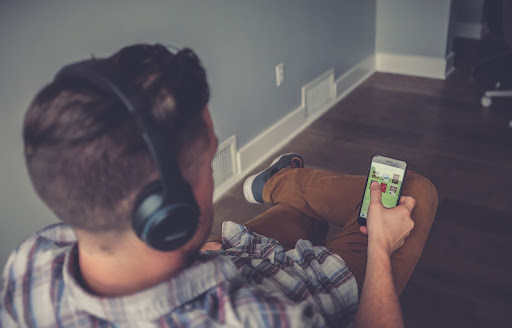
How to get your reading done for class without reading
Whether you’re struggling to adjust to the school year, find your free time dwindling, or are disoriented from adjustments after remote learning, we can all agree that getting all of our college reading done as well as any recreational reading has become challenging at times. The reality is that oftentimes adults just don’t have the same amount of time or attention span they did when they were children devouring their favorite tales. Luckily, this doesn’t necessarily have to affect your grade or stress you out.
Living in the digital age doesn’t come without its disadvantages. Despite being as connected as ever in an age of boundless technology and information, oftentimes it can result in becoming easily distracted and even suffering from information overload. However, one of the advantages for increased technology is the surge in audiobooks. Audiobooks have been a major savior for those who get easily tired or distracted reading words on a page or just don’t have an hour in their day to dedicate to reading.
Yet so often, we spend a significant amount of time daydreaming while doing monotonous tasks that need to get done like driving or showering. Why not kill two birds with one stone and listen to your assigned chapters during a workout or simply walking from class to class?
The best part is that this life hack can be achieved at no extra cost to you. Many of the novels, chapters, books, and even short stories assigned for your classes can be found in an audio version on apps such as Spotify and YouTube. Even a simple Google search can render free recordings on various websites of wonderful individuals who have taken the time to skillfully read pages of content for those of us that prefer to rest our eyes and be read to. In fact, being read to rather than reading can offer an academic edge, according to experts.
“Anyone who finds reading difficult… might retain more from listening to an audiobook. The additional effort involved in reading the words uses mental resources that they would otherwise need for comprehension and memory,” explains Matt Davis, a lead researcher from the University of Cambridge.
“Following along visually while listening can enhance word-recognition ability, while listening alone can expand vocabulary,” Mary Beth Crosby Carroll from The Children’s School in Brooklyn, NY told Scholastic. As it turns out, listening to audio versions of your books can make you not only a better listener, but also a better reader and speaker as you’ll be able to pronounce words you may have grappled with before.
Squeezing bits of listening in throughout the day may not seem like much, but if incorporated often can help a student get through their semester struggling significantly less than someone who will continue to struggle to get their pages done.

